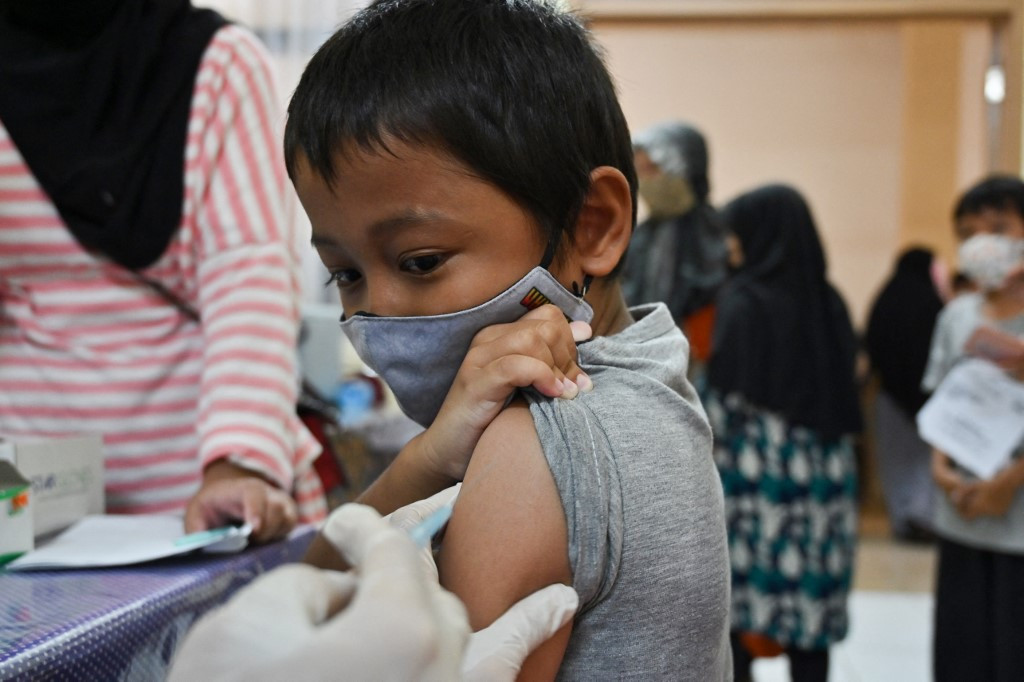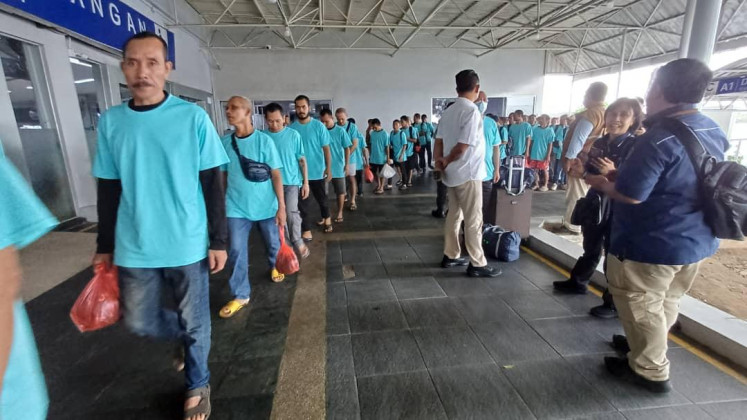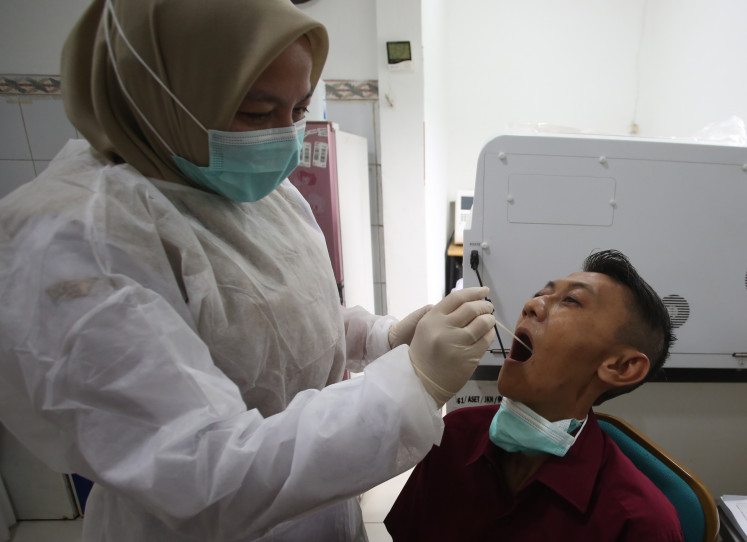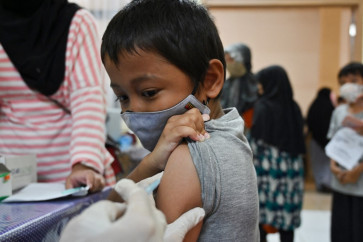Popular Reads
Top Results
Can't find what you're looking for?
View all search resultsPopular Reads
Top Results
Can't find what you're looking for?
View all search resultsIndonesia to expedite Omicron booster rollout
The government is planning to expand its COVID-19 booster program to members of the general public in January of next year, with priority given to immunocompromised people and the elderly.
Change text size
Gift Premium Articles
to Anyone
T
he government is planning to expand its COVID-19 booster program to members of the general public in January of next year, with priority given to immunocompromised people and the elderly, as new studies suggest that two-dose regimens are significantly less effective against the more transmissible Omicron variant.
Health Minister Budi Gunadi Sadikin said the public booster drive would begin earlier than planned in response to Omicron outbreaks around the globe, as the variant was spreading at an unprecedented rate and quickly outcompeting other variants of concern. So far, only health workers have received booster shots in the country.
"Initially, we planned to start rolling out booster shots after 70 percent of the target population [in each province] received a first COVID-19 vaccine dose and 50 percent received a second dose,” Budi said at a hearing with lawmakers on Tuesday. “But we will likely fail to meet this target before the end of the year.”
By Wednesday, the nationwide vaccination rate for the first dose stood at 71 percent and the second-dose rate stood at 50 percent, according to ministry data. But so far, only 13 of the nation’s 34 provinces, have vaccinated 70 percent of their populations and only 11 provinces have second-dose rates above 50 percent.
New studies from the United States, the United Kingdom, Hong Kong, South Africa and Israel, among other countries, have found that COVID-19 vaccines appear to offer significantly less protection against the Omicron variant but that a booster dose likely restores most of the protection.
Read also: Indonesia begins to give third COVID-19 shots to 1.5 million health workers
A study by researchers at the Massachusetts General Hospital, the Massachusetts Institute of Technology (MIT) and Harvard found "low to absent" antibody neutralization of the variant from the regular, full-dose regimens of the Moderna, Johnson & Johnson and Pfizer/BioNTech vaccines. But it also found that blood samples from recent recipients of an additional dose had antibodies that were able to neutralize the variant at high levels.



















